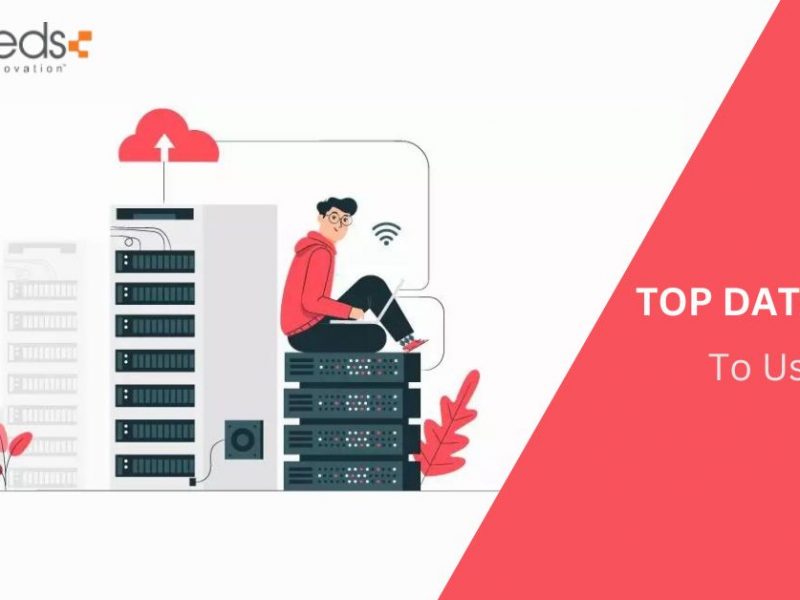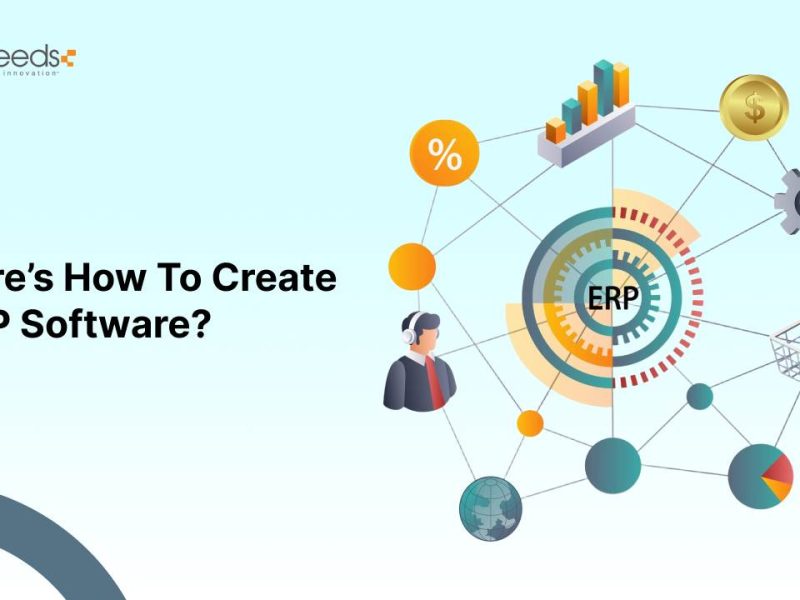Although the IT industry has transformed the operations or workings of almost every industry, the legal industry is one that still works on traditional methods. It is also quite obvious why this industry felt a lot of hesitation in moving to digital channels as there is a lot of paperwork involved, and most of its operations require manual involvement. But since now every industry is improving with digital technology, the new lawyers or law firms are also realizing the potential of IT software and have understood that embracing technology is no longer a choice but a necessity. That’s why legal software development is a reliable solution to improve legal operations, provide better operations, and get a competitive edge within your industry.
Legal software development will help your law firm to manage the increasing workload and complex legal activities. There are different types of legal software available for development to meet the various needs of a law firm. The high efficiency of the legal software can result in lower costs and, ultimately, more profits.
Legal software development can help you bring automation into the document review process, communicate with clients, assist in legal research, manage compliance, and much more. It will lower operating costs and increase profits. In this article, we will go through various aspects of legal software development, including its features, cost to develop, benefits, required tech stack, and much more. But first, let’s begin with the basics.
What is a Legal Software? Why develop it?
There is a cut-throat competition in the legal industry. Everyone is trying to leave their competitors behind and stay ahead of the curve. However, that requires certain advantages either in operations, marketing, perception, or service. With legal software development, you can get an edge in all these parameters. It will help you deliver better services to your clients and help you confidently manage legal battles.
Legal software is not just another enterprise solution but valuable software to help you with all your legal tasks and responsibilities. The system will help you in every phase, such as drafting, research, etc, with high precision and speed. It can process large amounts of legal operations quickly and accurately.
If you invest in legal software development, it will not just change the way you work but also rebrand your firm and give you a new identity. Here are a few statistics that reflect the importance and rising trend of legal software development in the market:
In 2022, the legal software global market was valued at $719.5 million, and by 2031, it is expected to surpass the valuation of $7252.8 million.
In 2020, compared to the previous year, the usage of tech in the legal industry increased by 32%.
As per a survey, 75% of law firms now leverage AI in some form or other.
AI in the legal industry will grow at a CAGR of 18.2% from 2023 to 2030.
These statistics are a clear indicator of the growth of tech in the law firms or legal industry. Thus, in a few years, even the clients will expect their legal counselors to use AI and other major technology to provide legal services to them, or they will move to someone else. It wouldn’t be surprising if they moved to your competitors who have already begun using them.
Types of Legal Software:



After understanding the importance and meaning of legal software development, you have to identify which type of legal software would be right for your firm. Every different type of legal software is built for specific needs or purposes in the legal industry. Here are the four major types:
a. Billing and Time Tracking Software:
Time plays an important role in every business, and law firms mostly charge their clients based on the hours they spend on their clients’ work. Thus, it is essential to track time and bill clients accordingly. The billing and time-tracking software will be built with functionalities for time tracking.
b. Legal Citation Generator:
The legal references or sources of legal documents are required to make the arguments or cases stronger. It becomes more important if you are dealing with legal publishing. A legal citation generator would be of great help in finding these legal references. It will allow you to copy and paste your text on a blank field and then extract links. It will scan through a generated list to provide you with relevant references.
c. Document Management Software:
Document crunching is an essential part of the legal industry. There are piles of documents that the legal team has to manage. Also, there will be various confidential documents whose access will be restricted to certain authorized persons only. It is not easy to maintain these documents using traditional methods. A document management software will resolve this problem. You can develop cloud-based management software to help you manage these documents with secure access and permissions functionality.
d. Productivity Management Software:
Productivity management software will help in staying organized with tasks, documents, hearings, schedules, meetings, etc. It will also allow you to bill and manage your clients, accounting, calendaring, online payments, time and expense tracking, etc.
Benefits of Legal Software Development:



There are tons of benefits of legal software development; here are the major ones:
a. Automation:
In the legal industry, there are various tasks that are completely repetitive. These tasks are not just time-consuming but also arduous, and no one wishes to do them. Even a newly hired intern from a law school wishes to research cases or assist senior advocates but doesn’t want to spend time on data entry. With automation through legal software development, your staff will be exonerated from these repetitive manual tasks.
b. Staying Organized:
There are a lot of facets to cover when running a legal entity smoothly and effectively. You need to put a high commitment to administration and organization, and sometimes, the critical aspects get overlooked. In short, it is difficult for smaller law firms to bring that level of efficiency with limited resources and staff. But with legal software, you can make your law firm organized. It will significantly reduce the time your employees put into arranging critical information while ensuring the efficiency of administrative tasks.
c. Task and Workflow Management:
Managing tasks and workflow is a necessity in a legal firm. Legal software lets you manage tasks and monitor every task assigned to each staff member or employee. You can also check the update or progress of each task. The solution updates completed tasks and notifies relevant parties of changes.
d. Accessibility:
In the legal ecosystem, bureaucracy is probably the root factor for its slowness – both internally and externally. Legal software can have a lot of benefits in this regard, as it can reduce delays that arise due to poor exchange of information. The legal software is cloud-based, i.e., any member of your law firm could get access to information in real-time from anywhere. Mobile solutions allow your team to maximize their time by working from wherever. This can boost the overall productivity and responsiveness.
e. Collaboration:
Easy and better access to information will foster collaboration between different employees of your legal firm. Also, it would allow the clients, attorneys, and employees to be on the same page. Thus, it will get easier to work on a case more effectively. There will be much better communication, which will speed up bottlenecks and help overcome other obstacles.
f. Time Tracking:
Tracking how many hours and minutes you have put in working on a case is the measure of how much you are going to earn for that. The clients are billed in accordance with the attorneys or legal counselors who have put the time into working on their case(s). With legal software, it becomes easier to track time and bill clients accordingly.
Top Features To Consider For Your Legal Software Development:



Apart from the must-have features such as a dashboard, billing and invoicing, calendar and appointments, task management, notification, etc., there are certain out-of-the-box features that significantly increase the utility of legal software development.
a. Project Management Tools:
The project management tools will break down individual projects into multiple stages to make them easily organized and administered. The legal counselor then proactively plans for high results.
While using legal software, the attorneys will require certain tools to help them understand the overall goal and identify the best direction for implementation. They also have to check the progress of tasks completed within the deadlines.



b. Reporting Functions:
A reporting function allows law firm leaders to assess the health of their business for effective planning and strategizing. When legal companies continue to proceed in the wrong direction, it reduces productivity and annoys firm members. Reporting capabilities enable attorneys to generate a variety of reports that reflect the health of their legal company. With this information, business executives may decide where to direct their resources and efforts most effectively and efficiently.
c. Streamlined Invoicing:
Invoicing is a most critical yet challenging task undertaken within a law firm. If you employ traditional methods, it can become unreasonably time-consuming as the staff has to spend a lot of time sifting through time records and creating billing statements from scratch.
It puts pressure on productivity, especially if it involves senior counselors. These counselors will be working on billable tasks and case management, not invoices. Some of the popular invoicing features are customizable templates, split billing options, batch invoicing, scheduled invoicing, electronic billing, and adjustable invoicing tools.
d. Integration:
Many law firms utilize different software for legal practices, such as ERP, Dropbox, Microsoft 365, and others. Thus, legal software should be able to integrate easily with this software and sync the data. These features save valuable time and reduce delays within the firm, creating a more productive atmosphere.
e. Time Tracking:
Time tracking features should allow lawyers to track time from anywhere, on any smart device, at any time of day… even when offline. It should also allow users to run multiple timers in order to track several tasks simultaneously.
f. Cloud Storage:
Cloud storage will allow law firms the ability to access firm data without any cumbersome and inefficient restrictions. The cloud removes physical boundaries to the firm’s data, allowing attorneys to work on matters and access client papers without having to be physically present in the office.
Tech Stack for Legal Software Development:



The tech stack will depend upon which type of legal software you want to develop and what features you want to implement. Here is the general tech stack that you will require for legal software development:
| Purpose | Tech Stack |
| Frontend | AngularJS, VueJS, ReactJS, HTML5, CSS3 |
| Backend | Java, Python, NodeJS, PHP |
| Database | MySQL, PostgreSQL, MongoDB |
| AI/ML | PyTorch, TensorFlow, Keras, Sckit-learn |
| NLP | Natural Language Toolkit, spaCy, Gensim |
| DevOps | Jenkins, GitLab CI, Docker, Kubernetes |
| Cloud | AWS, Microsoft Azure |
| Security | SSL/TSL protocols, OAuth 2.0, JWT |
Cost of Legal Software Development
The legal software development cost will depend upon a lot of factors, such as the type of legal software, features, and functionalities you want to implement, the experience of the development team, the location of the development team, complexities, etc.



Among all these factors, the location of the development team plays the most crucial role. The hourly rates change depending on the geographic location. E.g., if you outsource your project to a development team located in the USA or Eastern Europe, they will give you a quotation as per hourly rates of $90-$120 per hour. However, if you outsource to Southeast Asian countries like India, Malaysia, or Singapore, they will charge you $25-$40 per hour and provide you with the same quality.
That’s the reason why companies across the globe are now preferring Indian companies to outsource their projects. At Ebizneeds, we can provide you with the right quotation for your requirements with a free consultation.
Wrapping Up:
In this article, we have gone through several aspects of legal software development. At Ebizneeds, the best software development company in India, we have more than ten years of experience in developing custom software with complex features and functionalities. We have previously worked with law firms and provide them with out-of-the-box solutions.
When you outsource your project to Ebizneeds, we leave no stone unturned to provide you with the best services, streamlined communication, timely updates, and competitive quotations. We believe in building long-term business relationships with our clients. Let us know your requirements.



Naveen Khanna is the CEO of eBizneeds, a company renowned for its bespoke web and mobile app development. By delivering high-end modern solutions all over the globe, Naveen takes pleasure in sharing his rich experiences and views on emerging technological trends. He has worked in many domains, from education, entertainment, banking, manufacturing, healthcare, and real estate, sharing rich experience in delivering innovative solutions.


